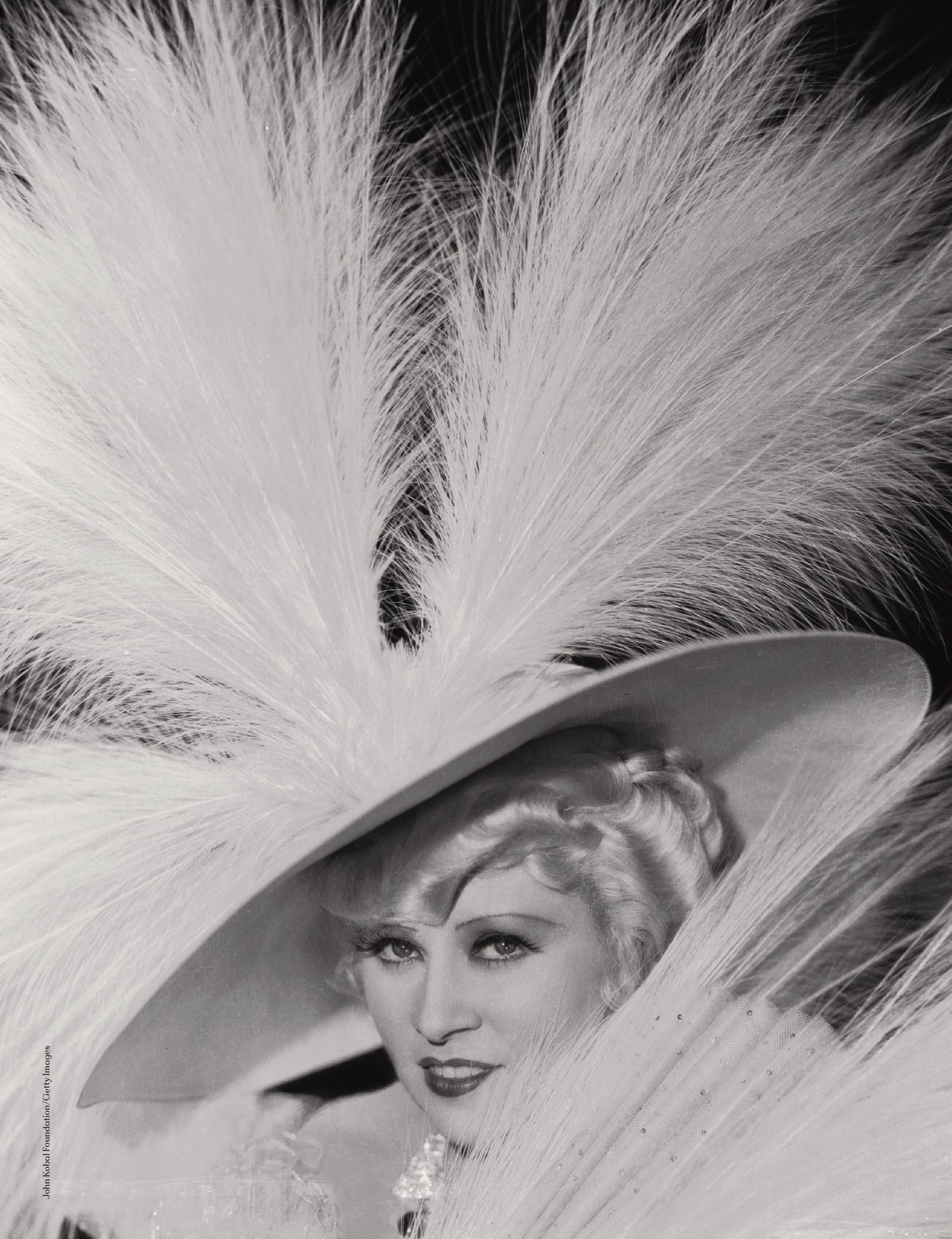Mae West’s career began 100 years ago, long before women were expected to choose their own paths in life. Yet even as a little girl, she knew clearly what she wanted (diamonds) and who she wanted to be (a big, big star), and set out wholeheartedly to get it. She spent eight days in prison for obscenity in her play Sex (“a million dollars’ worth of publicity”), saved Paramount Pictures from bankruptcy (she was their number one box-office hit in the 30s), coined a slew of lewd one-liners and inspired a generation along the way. Mae famously had little time for women, yet author Charlotte Chandler secured a rare interview months before her death in 1980, and something clicked. The result was one of the most candid and entertaining interviews in history.
“You know who Mae West is? I’m Cinderella in modern dress, and I wear high heel wedgies, cause those glass slippers are too fragile! I wouldn’t change my image for no one. I created myself. I didn’t turn out exactly this way all at once, though I wasn’t very different when I was a little girl. But in the beginning, I did some tinkerin’.” Mae West, 1893 – 1980
On my arrival in the afternoon that Mae and I met, she held out her hand to me. As I took it, I scratched my palm on one of her diamond rings. All of her fingers were covered with diamonds. She wore a diamond necklace, a diamond bracelet, and a diamond anklet. These, she explained, were just her “daytime diamonds”. Holding out her hands she said, “Look, they’re all real. They were given to me by admirers.” Her gaze settled on my own unadorned hands. “Oh, my, you poor kid! You don’t have any!”
For a moment she regarded me silently with amazement and pity. Then she brightened. “But you have some at home?” I shook my head.
Her look of deep sympathy returned. She studied me for a moment, then said encouragingly, “You could, honey. You could. But you’ve gotta try, and you’ve gotta know how to try. There’s nothing better in life than diamonds.”
“Maybe that’s what one has to believe in order to get them,” I said.
“You’re right,” she said. “You put your finger on it. Everything’s in the mind.” She touched her forehead. “That’s where it all starts. Knowing what you want is the first step toward getting it.”
I found myself aware of a distracting sound, something like the fluttering of the wings of little birds. Trying not to appear inattentive to what Mae West was saying, I could not resist glancing around the living room of her Hollywood apartment. But I saw no birdcages. The sound continued at frequent intervals. Only after Mae had been speaking for a while did I realise that it was the sound of her heavily mascaraed, multi-layered false eyelashes brushing her cheeks whenever she blinked.
Our meeting had been arranged by director George Cukor, who had known Mae since the mid-1920s, when they were both working on the stage in New York.
Mae West on ... Marriage: “They used to ask me, ‘How come, Mae, you never married? Was it because you couldn’t find the right person? Because you never found Mr Right?’ It wasn’t because I didn’t find the right man. It was because I kept finding him. I found too many Mr Rights”
Mae West was not anxious to give any interviews, especially to a woman. “I don’t have anything I want to sell, so I don’t like to give it away free.”
But she could not say no to George Cukor. She was still hoping that she would write and star in a film that he would direct. The only problem that concerned Mae was that Cukor was “getting up there in age”. That she was 86 at the time, Mae didn’t consider a problem.
Mae paused. “I want you to know, this is the last interview I’m ever gonna give.”
“Am I that terrible?” I asked. “No, dear. It’s not you. You’re very nice. It’s just that I was already in retirement as far as interviews are concerned when George asked me to do him this little favour. So, I came out of interview retirement.”
She already knew all the people she wanted to know, especially in light of the many hours she felt compelled to spend on her hair, make-up and dress before she could see anyone, because of the importance she gave to first impressions. Her face was nearly hidden by its mask of make-up, but her throat and décolletage revealed strikingly fair, soft, and youthful skin.
I had cost her three hours, I was told more than once, but it would have been double that if I had been a man. If she were going to see anyone at all, a man would have been preferable any day, and especially any night, she let me know.
“They always sent a man,” not specifying who “they” were. “I considered spending my time with girls a waste of time, so I didn’t mingle with any.” The only exceptions were her beloved mother and her sister Beverly. Men were the ones doing the interesting things, she said, and they were the ones who had the power to enable her to do them.
For Mae, Hollywood had real unreality, and that was the way she liked it. To the end, she nobly resisted any assault on her fairy-tale castle. Her Hollywood apartment in the Ravenswood building was truly an extension of Mae West, not only reflecting her, but also enhancing her and probably inspiring her. She had put a great deal of herself into it, and in return had received a great deal back. The furniture was upholstered in eggshell-white silk and satin, and appeared virginal, as if it had just been moved in for my visit. The accumulation of memorabilia, gifts from fans she couldn’t throw away, together with treasured family souvenirs, indicated that the private Mae West was a more sentimental person than her public character pretended to be. “Do you think money buys happiness?” I asked.
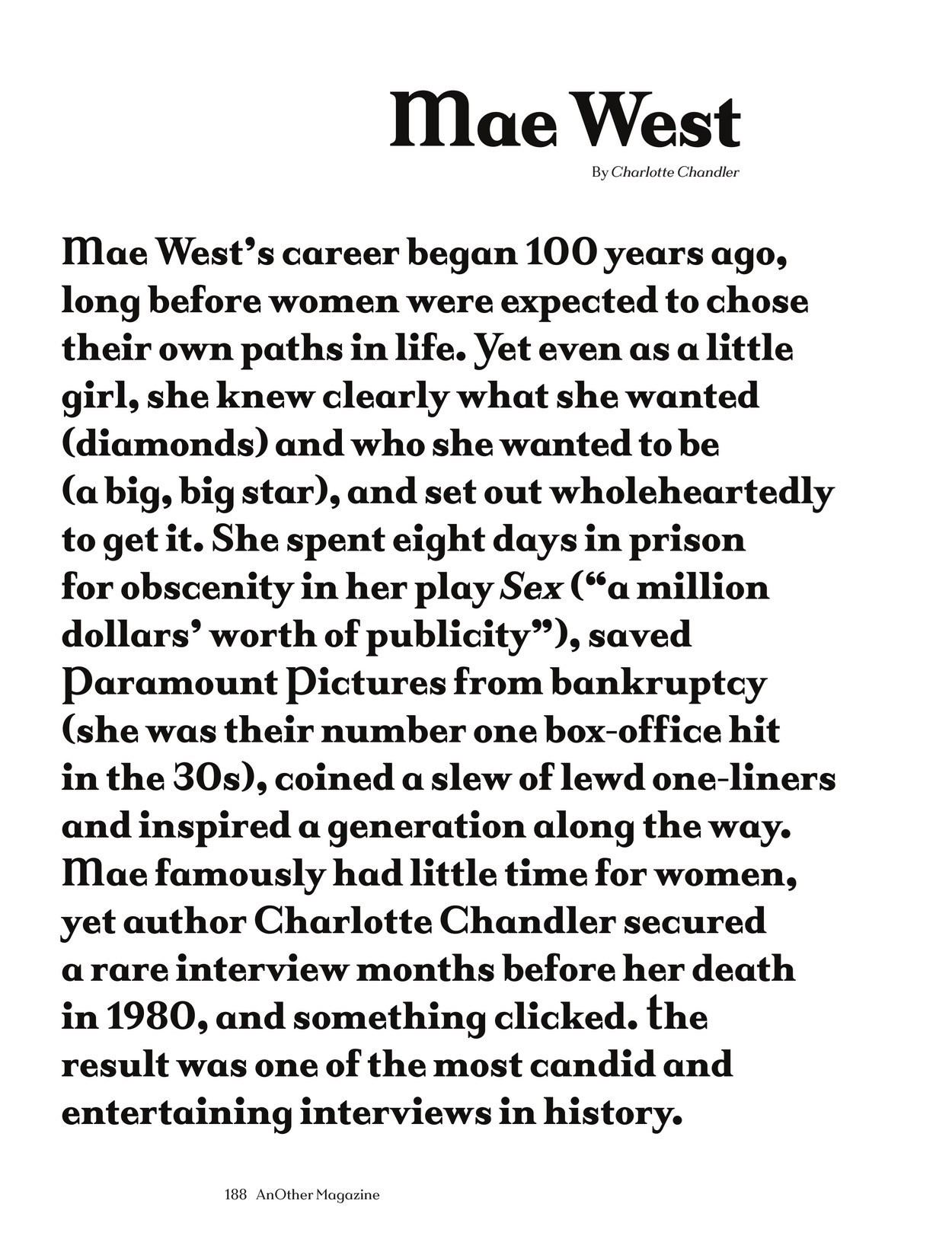
“No,” Mae answered, “but money is a great love potion for an affair. It buys a good bed in a nice bedroom with clean linens and time to enjoy it all. If you have money, you don’t have to worry about it, and worrying spoils your looks and your sexual concentration.”
When Mae interjected one of her celebrated epigrams or aphorisms to make a point, frequently she would change from a serious tone to the sultry delivery of Diamond Lil. She was not afraid to use ungrammatical language or incorrect words to make a point, and she occasionally tossed her head so that the movement of her hair would punctuate her comments.
Always the mistress of illusion, Mae wore long dresses or flared bottom pants designed to cover her stilt-like shoes. Her shoes had the highest heels I’d ever seen, and the heels seemed higher than the shoes were long, her feet being quite small.
Edith Head [Mae’s Hollywood tailor] had speculated that it was the height of those heels that had produced Mae’s famous suggestive walk. “In those shoes it was the only way she could walk! They were so heavy it was actually difficult for her to rise from a chair,” Head said.
Mae loved clothes and was a collector of them. Her perfectly kept gowns were not just stored but seemed to have a life of their own, rather like a row of headless ladies standing there waiting for a party to rescue them from their boredom. The feathered boas and lacy peignoirs looked as though they had stories to tell if I could have interviewed them, but they were forever keeping all confidences. Mae’s final fashion show was for her best and favourite audience, preening for herself, alone.
Later, when she was showing me her wardrobe, she encouraged me to try on some of the clothes. I was hesitant, but she insisted I model a black peignoir. “Doesn’t it make you feel sexy?” she asked. Her words were barely spoken when she looked at me in disgust. I had put it on over my blouse and skirt. “You can’t get the feeling like that,” she explained. “You have to be naked underneath.”
Perhaps Mae didn’t like to give interviews to women because she couldn’t act her part. With a woman, she had to reveal more of the private person, because she couldn’t use the time to be flirtatious or playful. “With a woman, Mae West has to be there and can’t just send Diamond Lil,” she told me.
“You know, there’s more to Mae West than to Lil,” she said. “For Lil, happiness was sex and diamonds. For Mae, it was work, but people don’t understand how seriously she takes it.
Mae West on ... Censorship: “I believe in censorship. If a picture of mine didn’t get an ‘X’ rating, I’d be insulted. Don’t forget, dear, I invented censorship. Imagine censors that wouldn’t let you sit in a man’s lap! I’ve been in more laps than a napkin. They’d get all bothered by a harmless little line like ‘Is that a gun in your pocket or are you just glad to see me?’”
“Economic independence is as important to a woman as to a man, maybe more important,” Mae said. She had achieved a kind of financial independence, which was rare for a woman, “and I’ve done it on my own, not by inheriting it, not by marrying it, and not on my back, but by using my brain and talent. Every woman has to make certain she’ll always have some change in her coin purse.
“When you get a reputation for being funny, people start to laugh at everything you say. It makes it hard to try out your material and judge it. You ask for a cup of coffee, and people read things into that. I’m not a flippant person. There was a lot of serious reflection in what I said. “I hope you’re going to show me that way in what you write. You know, there was always something going on in my head. My head was always working.
“Did I have a serious side? Both sides of me are serious. It’s pretty serious finding what’s funny. I worked a lot during the Depression, and I understood it was important people laughed so they wouldn’t cry. There were people jumping out of windows. There were people selling apples on the corners who’d never before had anything to do with an apple, except eating it. Guys who had seats on the stock exchange had seats on buses, driving them – if they were lucky.
“You know when I was most serious? When I laughed at myself.”
Mae gave me a hard look and said, “There’s something I’ve gotta tell you before we really get into it.
“If you want to smoke, you’ll have to leave the room and go out into the hall. We don’t keep any ashtrays here. I don’t let anyone smoke in my presence. I don’t breathe it, and I don’t want it getting into the furniture. Let me know when you want to go out into the hall.”
I assured her that this would not be necessary because I didn’t smoke and never had. Her approving look indicated that I had passed an important test.
“Then you’ll keep your soft skin,” she said. “That’s how I kept mine. I always use baby oil. Baby oil’s good for the whole body. But the secret is it has to be warm, and you have to have a man put it on you – all over.
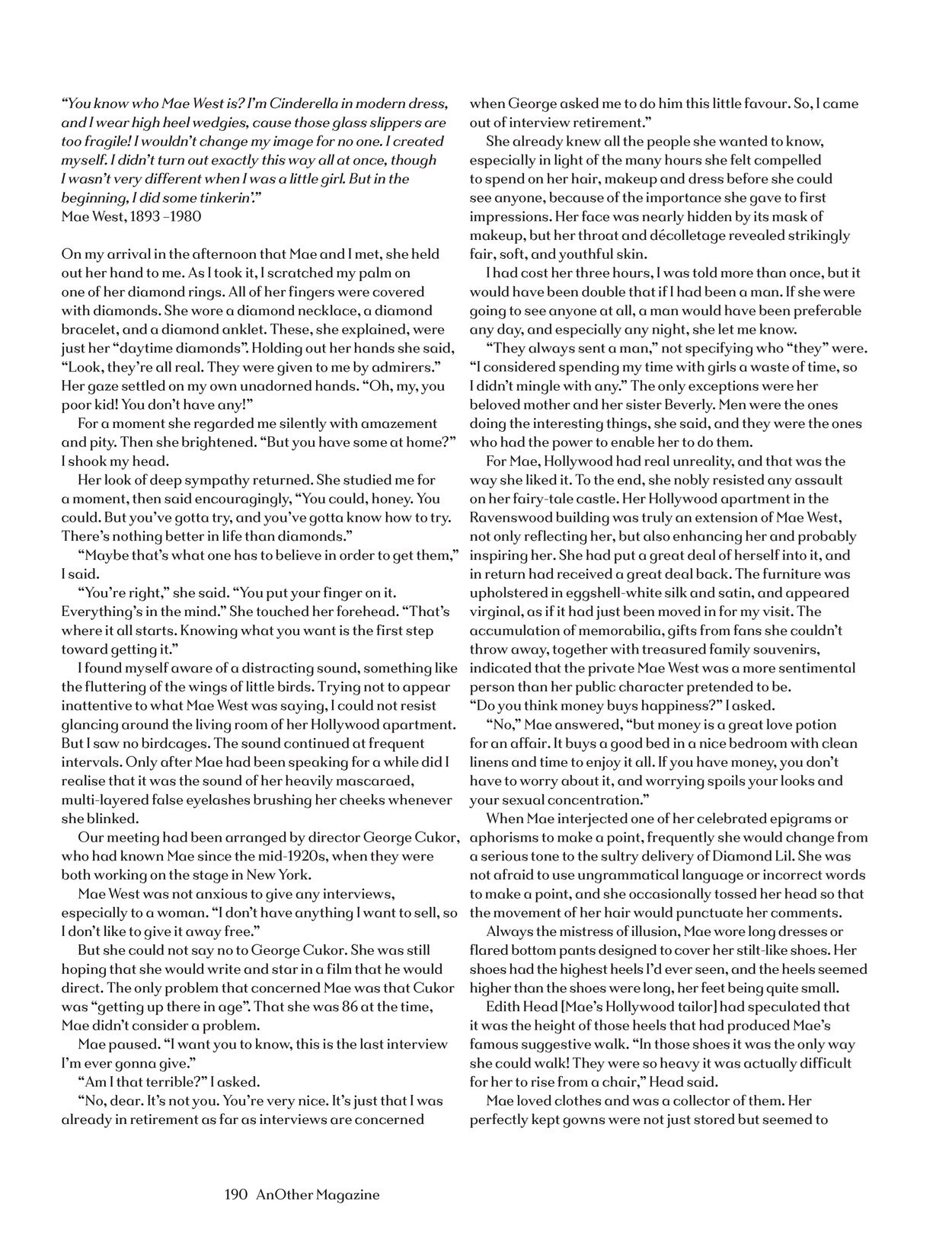
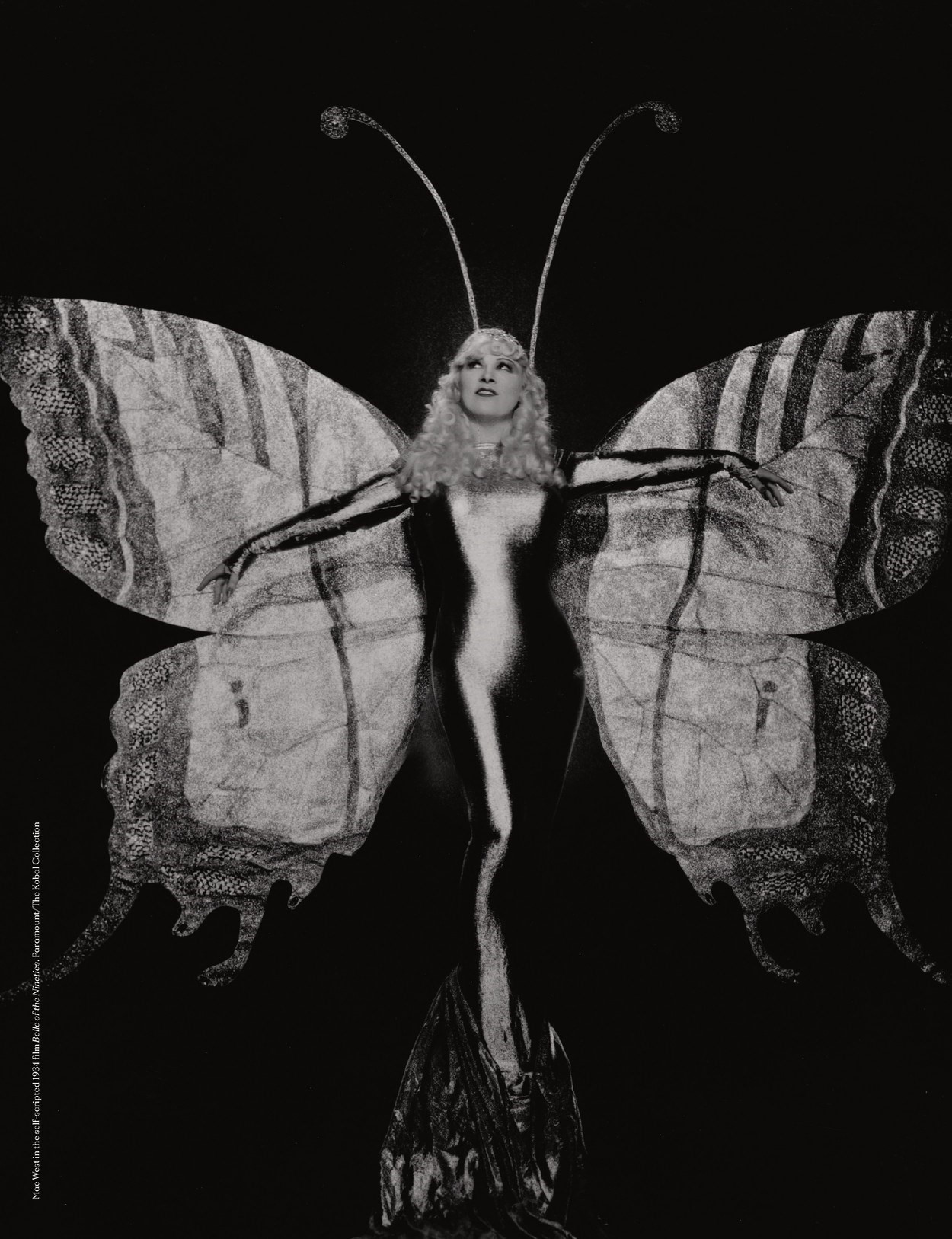
“You aren’t wearing any make-up! Is it because I said you’d better come on time? Did you have to get ready in a hurry?”
“It wasn’t because I didn’t take meeting you seriously,” I said. “It’s because I never wear any make-up.”
“Never? Oh, that’s a shame. You’d look good fixed up. Remind me before you leave. I can let you have some powder and lipstick.”
She noticed the Hermès scarf tied around my neck. “Is that scarf because you’re cold,” she asked, “or do you have something to hide?”
I took it off. “That’s better,” she said. “Now, if you’d unbutton a few buttons ... Men like it if you show them a thing or two. I dress for women and undress for men.
“I can smell you’re telling the truth about smoking, because if you smoked, your clothes and hair would smell from it, especially your hair. You know, I never liked being touched by a man who smoked.”
Mae invited me to smell some of the powders and perfumes on her vanity. She told me that she had always been extremely conscious of scents.
“My mother was responsible for my olfactory development,” Mae said. “It wasn’t so much what she said as the way she smelled. We all learn more by example, especially when we’re very young.
Mae West on … Sex: “My best lover was a Frenchman. I always was interested in foreign affairs. One Saturday night we were at it till four the next afternoon. A dozen of those little rubber things. 22 times. I was sorta tired. Like I always said, ‘It’s not the men in my life, it’s the life in my men”
“My mother always smelled so fresh and clean, like she’d just come out of a bath. I liked to smell her bars of soap. They were perfumed, but not too much. Everything my mother did was delicate. Her perfume just wafted.”
I asked about having a photograph with her, suggesting that Paul [Novak, Mae’s devoted companion] could take it.
“I wish I could accommodate you, dear, but I never have my photograph taken with a younger woman.” At Mae’s age, the category of “younger woman” included almost every woman.
“I never like to see myself in a picture, except surrounded by men. I only keep the best pictures of myself, you know. You should always keep the best picture of yourself in your own head. You should have beautiful pictures of yourself all around to look at. When you don’t look your best, you shouldn’t even look at yourself in the mirror. You should put on your most beautiful wrapper. You should look your best for yourself when you’re alone. You can’t afford not to look good alone or you’ll stay alone.
“I’ll be glad to give you some pictures of me, and I’ll autograph them for you. That’s something I take very seriously, autographing. Every person who ever wrote me for an autograph, or asked for an autographed picture of me, or sent me something to sign, every one of them got a genuine autograph from me. It was a lot of work, but those were my fans who were asking, and I always treasured my public.”
“My mother was a health nut and my father an athlete,” she said. “I never understood drinking alcohol. It isn’t good for your health or your looks, and it cuts down on what you are. I never wanted to cut down on what I am.
“I guess I owe my good health to my mother. In those days, if you thought like she did, they called you eccentric, or odd. Now a lot of people believe the way she did, and they aren’t called odd. Lots of fruit, vegetables, not many sweets, you know.”
Mae kept looking at the gift-wrapped box I had set down on the table. “What’s that?” she asked with childlike enthusiasm.
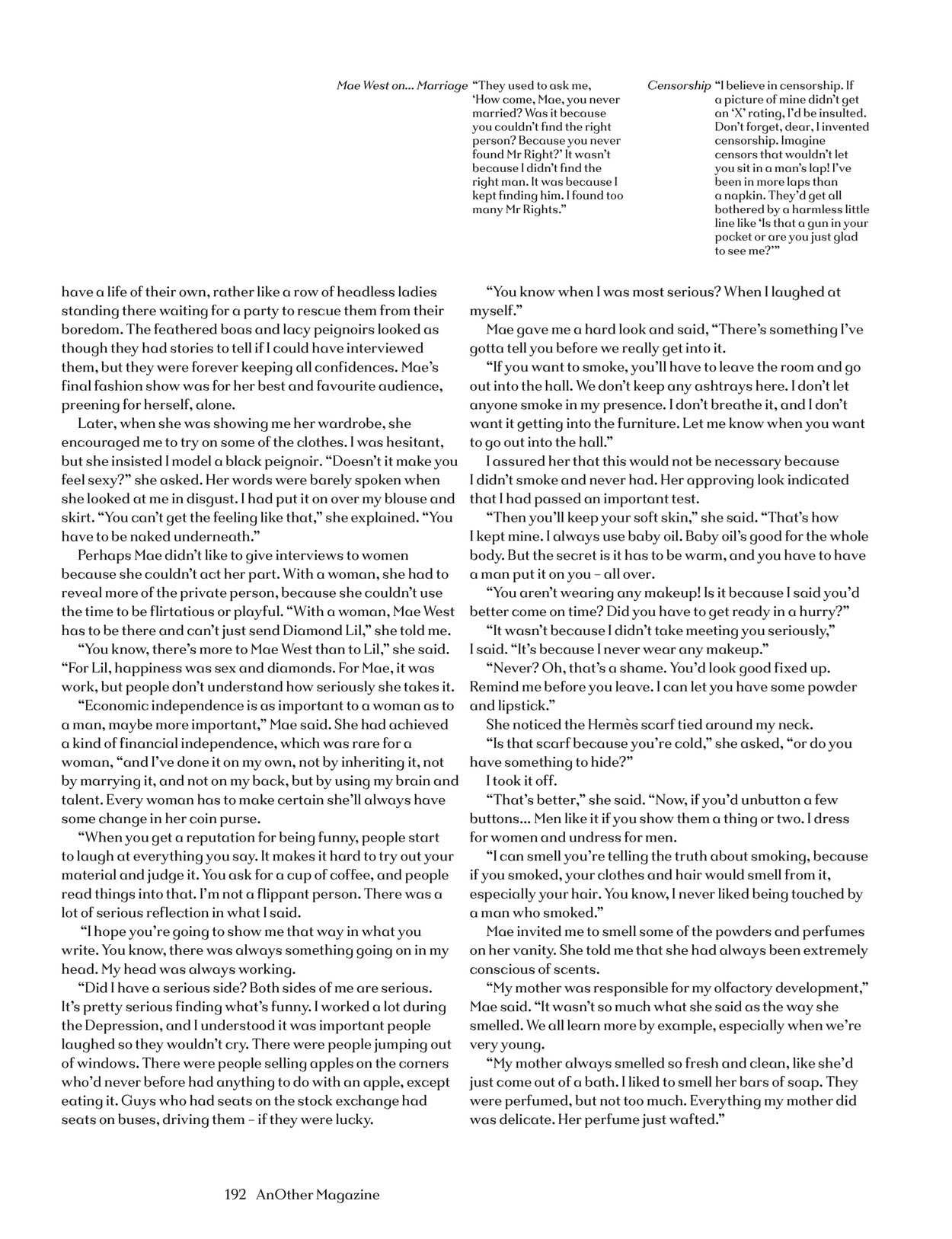
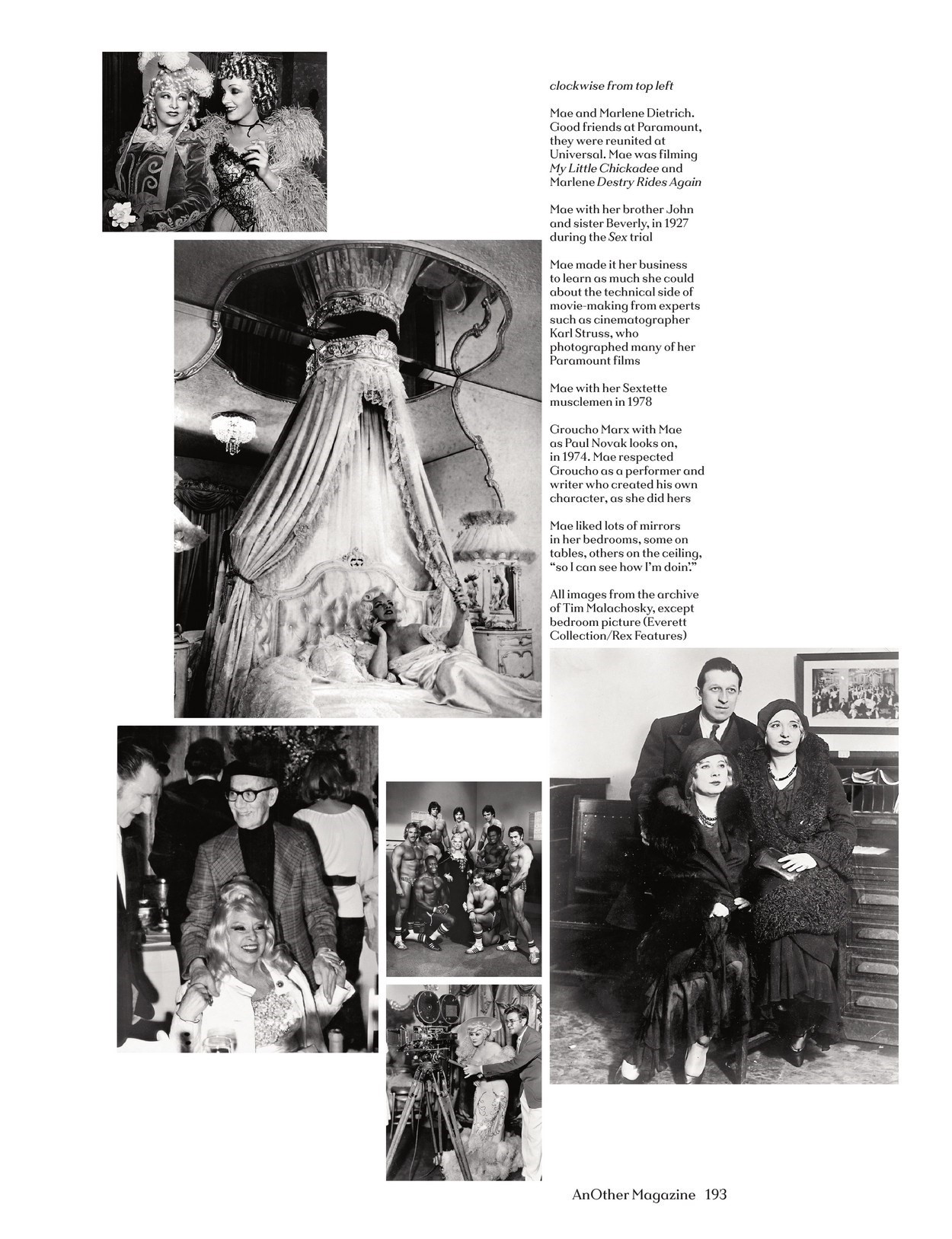
“George told me you have a passion for chocolates,” I explained.
“I do have a passion,” she said. “What kind of chocolates are they?”
“One is very healthy, with hardly any sugar. It has prunes and dried apricots inside. The other is a cream truffle.”
Opening the first box, Mae almost destroyed the contents in her haste to get inside. Then she voraciously attacked the second box, nearly mashing a few creams. It was only after she had both boxes open that she made her choice. As if fearing someone might take the box away from her, she snatched two chocolate truffles.
“I like my pleasure,” she said, composing herself and holding out the box to me. “You can have one too, honey.” She never let go of the box. Not wishing to deprive her, I selected one chocolate-covered apricot and began to eat it.
“The next time you come, I’m gonna give you some chocolate. Have you ever eaten Ragtime chocolate? Hardly anyone does any more. I know the last place in America that still makes it, and it’s not far from here.”
Mae indulged in one more and was reaching for a fourth when Paul firmly took the box away from her. She looked petulant, but not displeased. Clearly, she was accustomed to and enjoyed having him watch over her. “I like my men to be men,” she said after Paul had left.
“Pills, I never take them. I don’t even take vitamin pills because who knows what’s in them?
Mae West on ... Fashion: “When I was making a film, I would stand during the whole shooting, seven hours a day, so I wouldn’t wrinkle my dress. They’d say to me, ‘Mae, aren’t you tired?’ But I didn’t let myself get tired. I’d say to myself, do I want to look my best for my public that expects it of me? Or would I rather sit down? That wasn’t any choice”
“I was always indefatigable. I never knew exactly why. I always had this extraordinary energy that I had to do something with. They only just found out that I had a double thyroid. Always had it, but I didn’t know it. Maybe that’s been the source of my energy, especially my sex energy. When they told me I had a double thyroid, they wanted to take one away, but I wasn’t doing that. I don’t believe in tampering with what’s going right.
“I would never, ever have my ears pierced. I took a chance of losing a favourite diamond earring, which I never did. But I wasn’t having anyone make a hole in my ear.”
I suggested that what the world considers odd or eccentric might actually be a person’s good fortune, but there would always be those who valued conformity over individuality.
“It isn’t what I do, but how I do it. It isn’t what I say, but how I say it. And how I look when I do it and say it. Individuality is everything. Individuality, and enthusiasm, too.
“Do you know what question I’m asked the most? About the mirrors on my bedroom ceiling. I say, ‘I like to see how I’m doin’. It’s the truth. It’s very exciting. You should try it.
“The question I’m next most often asked is, am I always the Mae West everybody knows, or am I different when I’m alone? The answer is, when I’m alone, I’m the same Mae West. But you’ll have to take my word for it, cause when I’m alone, there isn’t anyone else here.”
After my meetings with Mae, I was asked, “Did Mae West understand about protecting her myth, or did she believe it?”
The answer to both questions is yes.
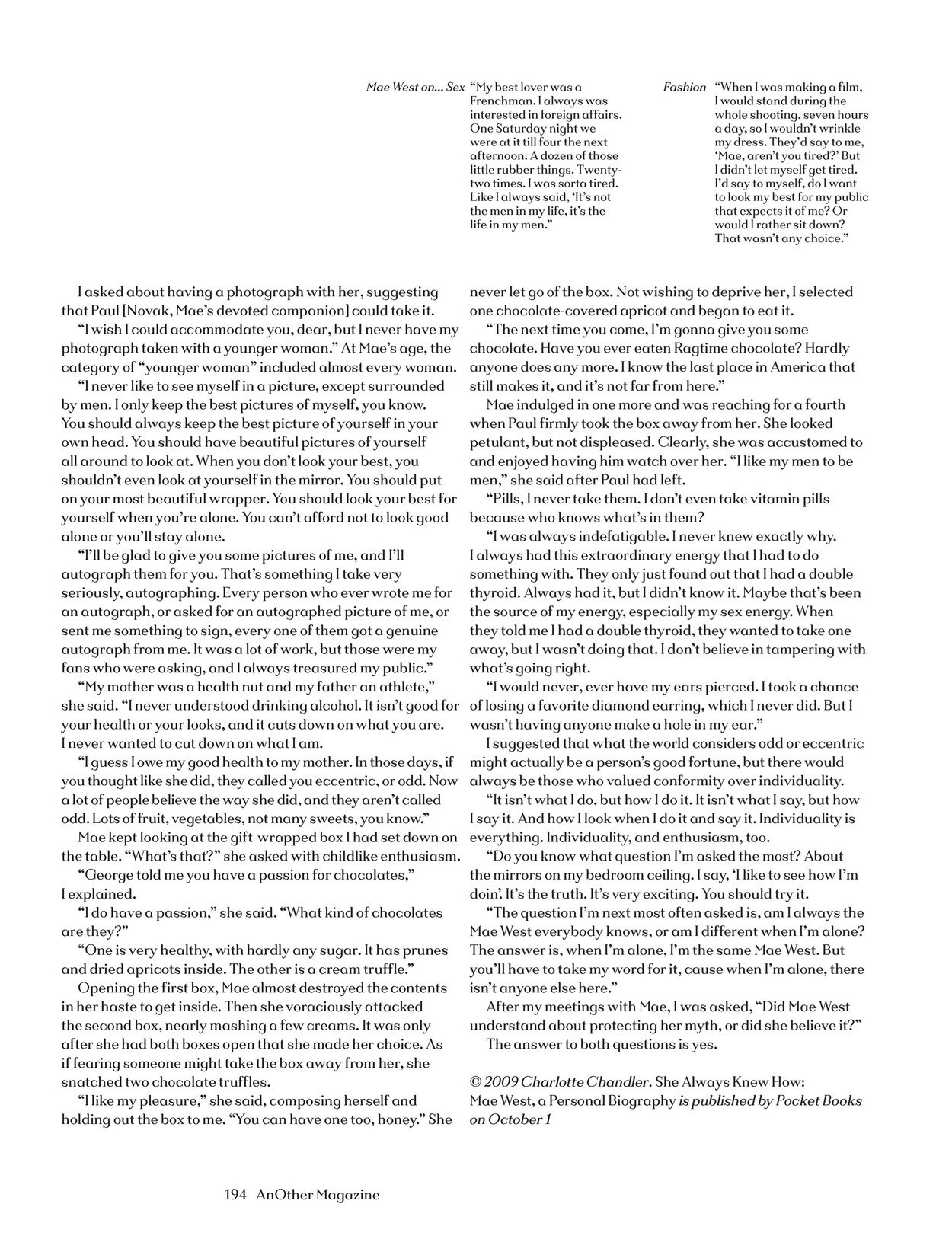
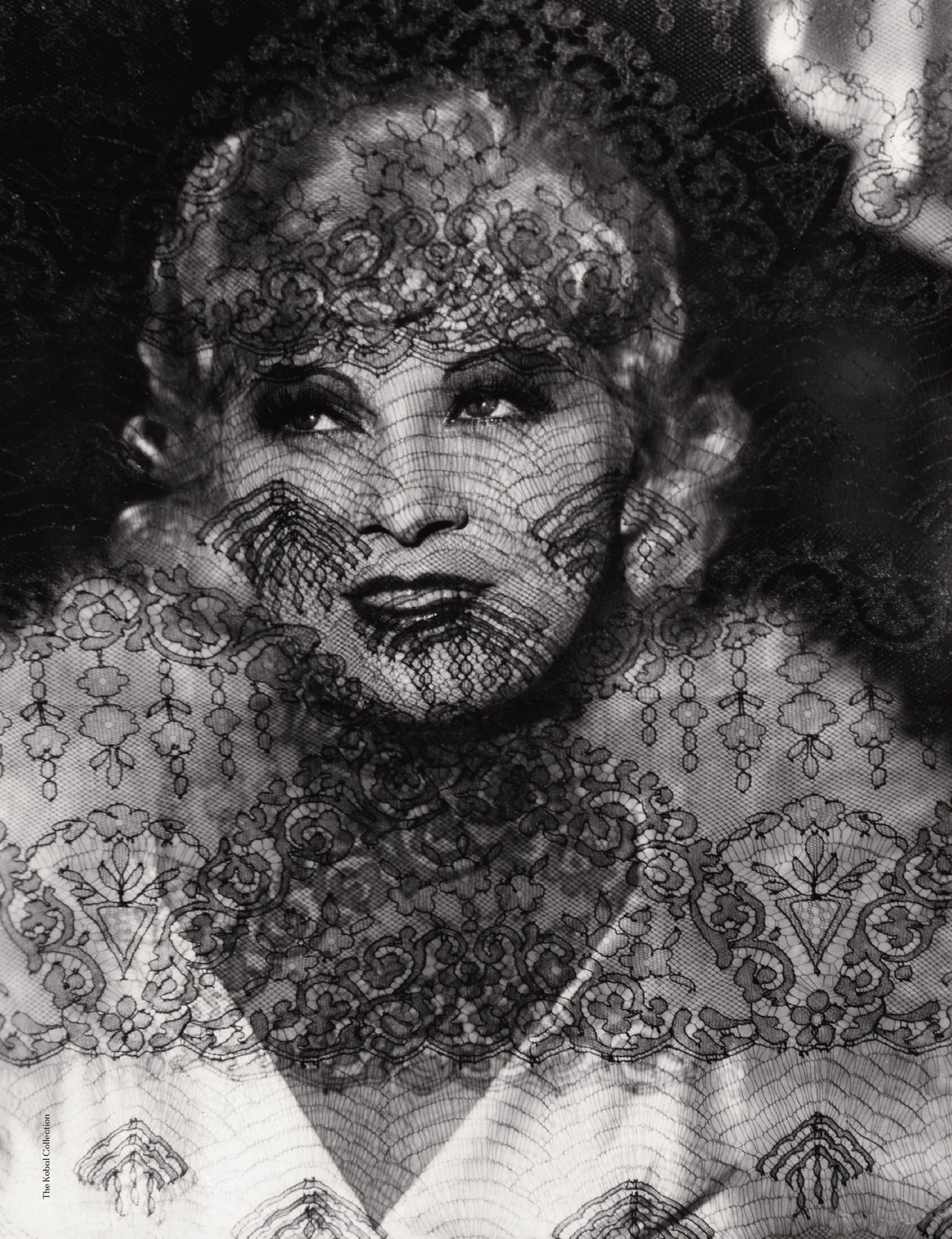
© 2009 Charlotte Chandler. She Always Knew How: Mae West, a Personal Biography was published by Pocket Books on October 1, 2009.
This article was originally published in the Autumn/Winter 2009 issue of AnOther Magazine.
